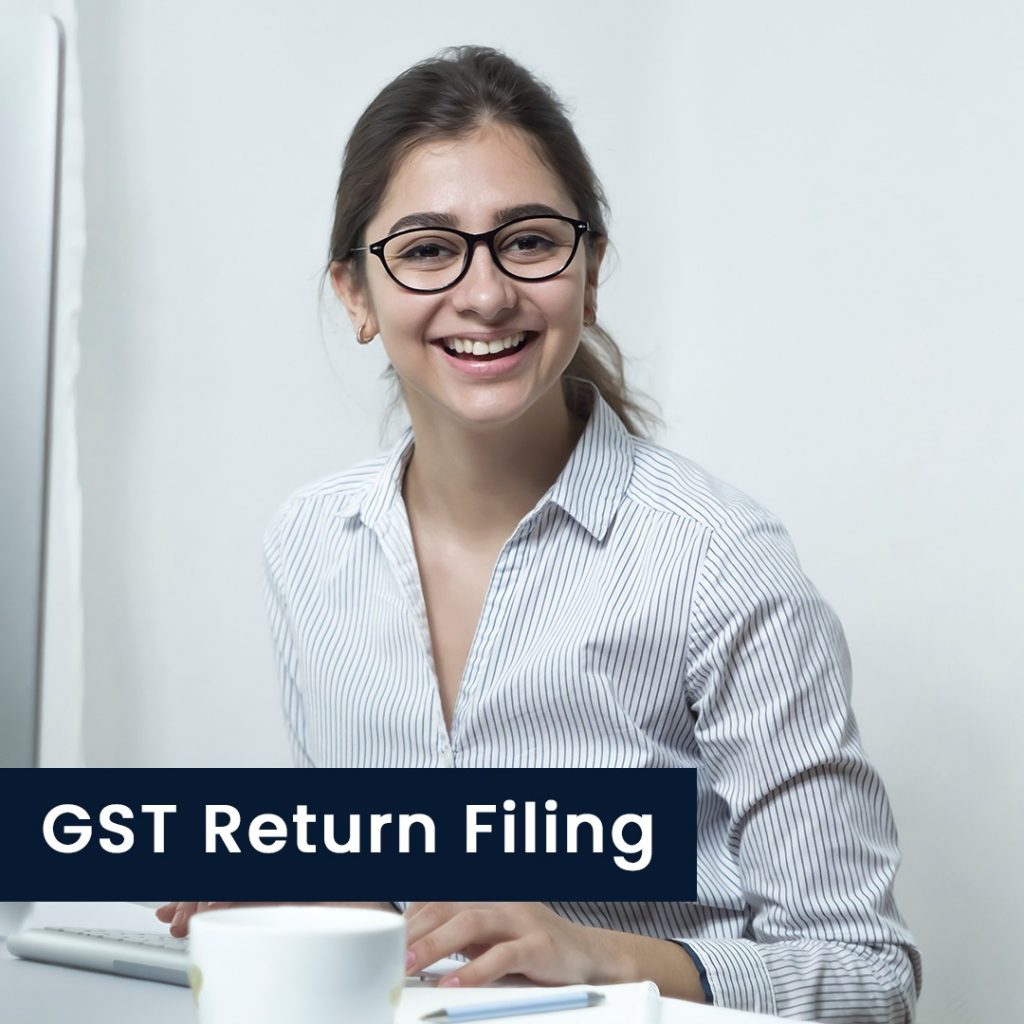
Rs. 2899 (All inclusive price.)
3 month GST return filing with Accountant support for uploading return and LEDGERS GST Software
Rs. 4899 (All inclusive price.)
6 month GST return filing with Accountant support for uploading return and LEDGERS GST Software
Rs. 8899 (All inclusive price.)
12 month GST return filing with Accountant support for uploading return and LEDGERS GST Software
Rs. 725 (All inclusive price.)
1 Months Gst Return Filings
- 3 Months GST Return Filing
-
Rs. 2899 (All inclusive price.)
3 month GST return filing with Accountant support for uploading return and LEDGERS GST Software
- 6 Months GST Return Filing
-
Rs. 4899 (All inclusive price.)
6 month GST return filing with Accountant support for uploading return and LEDGERS GST Software
- 12 Months GST Return Filing
-
Rs. 8899 (All inclusive price.)
12 month GST return filing with Accountant support for uploading return and LEDGERS GST Software
- 1 Months Gst Return Filing
-
Rs. 725 (All inclusive price.)
1 Months Gst Return Filings

What is a GST return?
1.4 Crore businesses have obtained GST registration since its inception in July 2017. All entities obtaining GST registration are required to file the GST returns every month. GST return is a document which contains details of the income that a taxpayer is required to file.This is used to calculate the tax liability i.e., the amount of tax payable by the business.
The returns are to be filed irrespective of business activity, sales, profitability and other criteria. A dormant business which has not issued any invoice is also required to file its GST returns.
GST Return Filing
Registered entities are required to file 2 monthly returns and 1 annual return, for a total of 26 returns in a year.
Entities have to file the GSTR-3B return every month providing details of sales and purchases made in a month. In addition to the GSTR-3B return, businesses registered under GST must file GSTR-1 returns. GSTR-1 return must be filed every month by businesses having an annual revenue of over Rs.1.5 crores.
In case a business has a yearly revenue of less than Rs.1.5 crores, GST returns should be filed every quarter. Annual GST returns must also be filed by all entities in addition to the above.

Pay as you go grow pricing
All Inclusive Pricing – No Hidden Fee
Basic
Personalised GST Accountant
LEDGERS Accounting Software
GST eWay Bill Software
Unlimited Estimates
Unlimited Invoices
Unlimited Purchase Invoices
Unlimited Purchase Orders
GSTR-3B Return Filing
GSTR-1 Return Filing
Input Tax Credit Reconciliation
GSTN API Connect to File Directly
Import or Export to Excel
Import or Export to Tally
Phone, Chat & Email Support
GST Payment Support
Standard
Personalised GST Accountant
GST eWay Bill Software
Unlimited Estimates
Unlimited Invoices
Unlimited Purchase Invoices
Unlimited Purchase Orders
GSTR-3B Return Filing
GSTR-1 Return Filing
Input Tax Credit Reconciliation
GSTN API Connect to File Directly
Import or Export to Excel
Import or Export to Tally
Phone, Chat & Email Support
GST Payment Support
Premium
Personalised GST Accountant
GST eWay Bill Software
Unlimited Estimates
Unlimited Invoices
Unlimited Purchase Invoices
Unlimited Purchase Orders
GSTR-3B Return Filing
GSTR-1 Return Filing
Input Tax Credit Reconciliation
GSTN API Connect to File Directly
Import or Export to Excel
Import or Export to Tally
Phone, Chat & Email Support
GST Payment Support
GST Refund Support
8 Years GST Data Storage on Clouds
GST Registration
- Premium LEDGERS Accounting Software with GST Portal Integration and eWay Bill Software.
- Business Current Account and Payment Gateway powered by ICICI Bank Limited. Subject to terms and conditions of ICICI Bank Limited.

Penalty for late filing
Penalties and cancellation of the GST registration will result if an entity fails to file GST returns on time. In-case of non-compliance for more than six months consecutively, the entity would be unable to obtain another registration in addition to cancellation- until all the penalties are paid back in full.
The penalties for entities having no turnover is different when compared to entities having a certain turnover. NIL returns must be filed in case of no turnover and failure to do so will result in a penalty of Rs. 20 per day.
Established businesses will be levied with a penalty of Rs. 50 per day for the period of late-filing. A penalty of Rs. 50 per day will be applicable for late GSTR-3B return and Rs.50 per for GSTR-1 return. In total, a penalty of more than Rs.3000 per month would be incurred. In addition to the above late filing fees, the entity would also have to pay interest at the rate of 18% on GST payment remitted late.
*As per 40th GST council meeting, the penalty for late filing has been waived off.
Composition Scheme Filing
All entities registered under the composition scheme are required to file form GSTR-4A every quarter through the GST portal or through a GST facilitation centre.
GST returns for those enrolled under the composition scheme is due on the 18th of the month every quarter. Hence, GST return filing for the composition scheme would be due on April 18th, July 18th, October 18th and January 18th.
The returns filed must include details of the following:
- Inter-State and intra-State inward supplies received from registered and unregistered persons
- Consolidated details of outward supplies
Even if an entity opted for the composition scheme starting April of that year, it must continue filing monthly GST returns until September of the same year.


Composition Scheme – Due dates
While filing the GST composition returns, the taxpayer is also required to pay all liabilities towards tax, interest, penalty, fees or any other amount payable under GST.
GST composition tax is levied at the following rates:
Its important to note that any taxpayer who has opted for the GST composition scheme will not be eligible to avail input tax credit on receipt of invoices or debit notes from the supplier for the period prior to opting for the composition scheme.
GST Return Filing Process
When an engagement is received, a dedicated GST advisor will be assigned to the business. The advisor would contact you each month, collect the necessary information, prepare the GST return and help you file the same.
Some of the advantages of outsourcing your GST return filing to IndiaFilings are given below.
The average time taken to file a GST return is about 1 – 3 working days, subject to the government processing time and client document submission.
LEDGERS GST Software
In addition to the GST advisor support, LEDGERS GST Software will be provided to the client for GST invoicing, payments, returns filing and accounting.
Some of the features of LEDGERS are:

Important due dates
GSTR-1 (Monthly)
Monthly GSTR 1 returns must be filed by taxpayers having a turnover of more than Rs.1.5 crores. For example, filing for the month of December is due on 11th of January.
GSTR-1 (Quarterly)
Quarterly returns must be filed by taxpayers having a turnover of less than Rs.1.5 crores. For example, GSTR-1 quarterly returns for the months of October to December is due on 31st January.
CMP-08- Quarterly-Composition Scheme
CMP-08 must be filed by taxpayers registered under the GST composition scheme having a turnover of upto Rs.1 Crore. For example, the statement cum challan for the September to December quarter is due on 18th January.
GSTR-4- Annual-Composition scheme
GSTR-4 returns filing for the financial year is due on 30th April. Quarterly returns must be filed by taxpayers registered under the GST composition scheme having a turnover of upto Rs.1 Crore.
GSTR-9- Annual returns
Annual GST return filing for the financial year is due on 31st January. This is mandatory for all entities.

